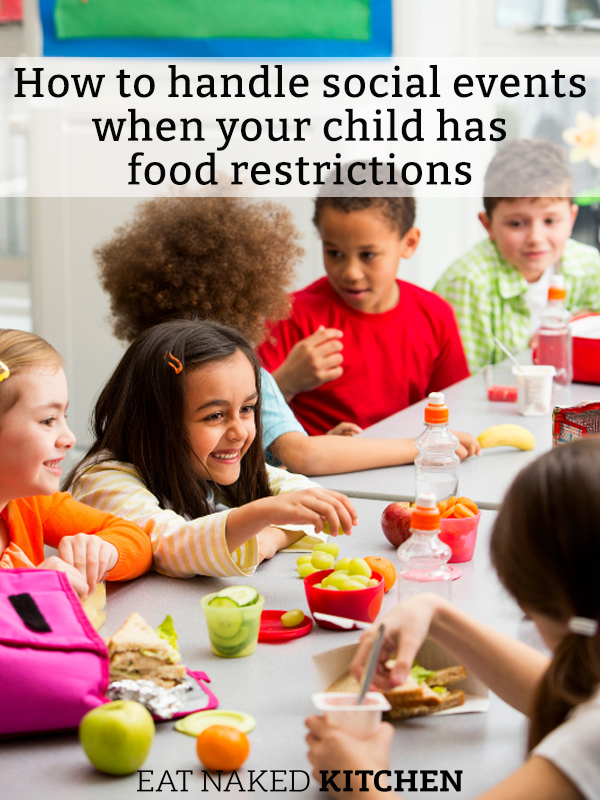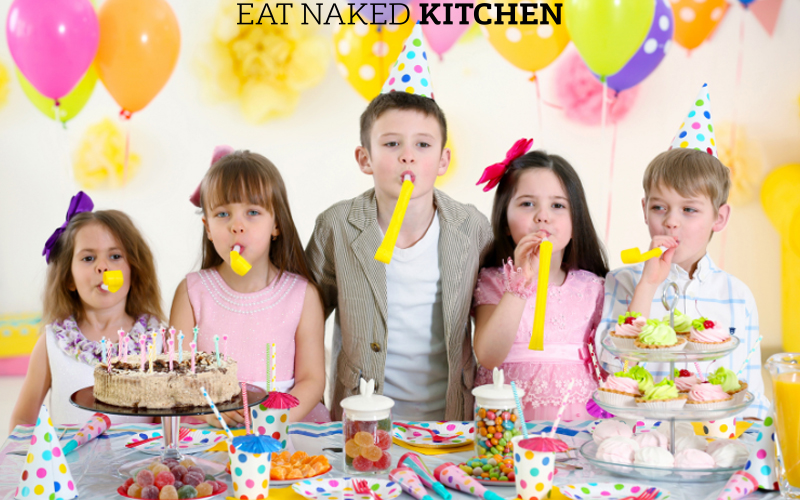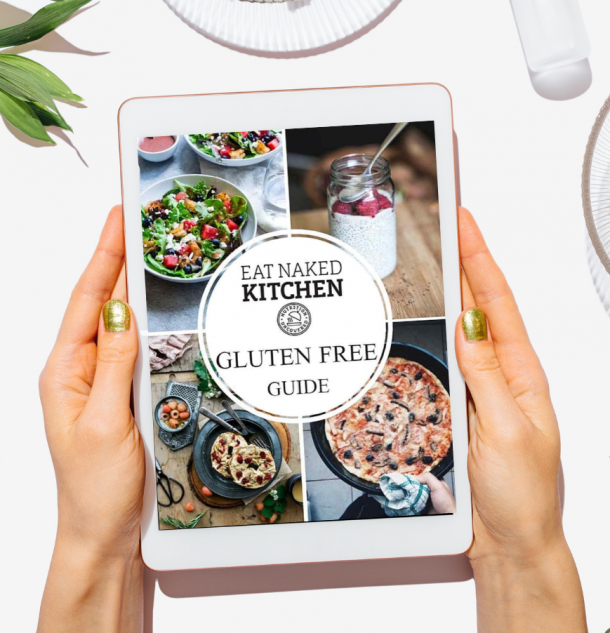“Oh yes we’d love to come to Johnnie’s birthday party!”
You force a smile as your insides fill with dread. Gluten- and sugar-filled desserts, allergen-filled snacks… social events are a veritable minefield for kids with food restrictions.
Having dealt with this myself and coached many clients through similar situations, I’ve learned some very important lessons of what works and what doesn’t work when it comes to handling social events and complex food restrictions.
The great news is this:
Social engagements don’t have to be a nightmare with a little pre-planning and a certain mindset.
With some thought, consideration and a little advanced planning, you and your child will soar through social engagements rather than fear them. Here are six strategies we use with great results.
1. Bring something special for your child.
Going to a birthday party? If your child won’t be able to eat the birthday cake, bring a special cake for him to enjoy and share with the other kids. He won’t feel as left out if he’s got something special of his own. In our experience, everyone wants to try the “special cake” our daughter has – so it actually makes her feel special, not isolated.
2. Involve your child in preparing the “something special”
There’s no better way to get your child’s buy in to what they’re eating (in social situations or otherwise) than to involve them in its preparation. Sia was invited to a party recently and she and papa spent a lovely afternoon making her special cake. She was so proud of it, she couldn’t wait to bring it to the party. She didn’t even notice the cupcakes she couldn’t have because she was so excited about what she brought.
3. Warn your host ahead of time.
You always want to respect your hosts and give them a little heads up of the situation. Explain why you’re showing up with your own “special food.” Most hosts are more than accommodating and appreciate both the advanced warning about your child’s dietary needs, AND the fact that you’re taking the responsibility for them.
Ask your host what she’s planning on serving for food so that you can make sure your child has things to eat. Don’t make assumptions – you want to make sure your child has yummy options that work for him.
4. Explain to your child that there will be things she can’t eat and things she can.
Kids aren’t stupid – they know when something’s up. So rather than try to hide the situation and make it all easy for your child (which normally backfires in amazing ways), sit her down and explain what’s going on. It doesn’t have to be complex. It can simply be: “We’re going to Johnnie’s birthday party and the cake they have will hurt your tummy. I don’t want your tummy to hurt so we’re going to make our own special cake. Won’t that be fun? Would you be willing to share it with the other kids, too?”
I’ve found the more we involve Sia in the process and explain in simple terms what we’re doing and why, the more she cooperates because she understands what’s going on and doesn’t feel like we’re trying to pull one over on her.
5. Don’t make a big deal about it.
Your child picks up on energy, and if you’re fretting about what he can or can’t eat or worrying that he’s going to feel deprived or left out, then you’re setting him up for failure. He’ll sense that something’s off and quite likely start acting out. If, on the other hand, you don’t make a big deal about it and are very matter of fact – “this is the way it is”- without emotional attachment one way or the other, it becomes a non-issue. Even if he struggles for a little bit, the less emotionally riled up you are, the quicker he’ll calm down.
When we’re at the party and it’s time to eat, instead of focusing on the foods Sia can’t eat, we focus on the ones she can. Obviously, we need to make sure she doesn’t eat something she’ll react to, but we put most of our energy on the things she can do to keep it as positive as possible.
6. Be your child’s partner.
If your child can’t eat gluten and you bring a special cake, then by all means don’t eat the regular cake in front of her. Show her you’re on her team and eating the same way she does. This will help her feel included.
7. Don’t make the party about the food.
Parties are about so much more than just the food, but we tend to make the food the central point of things. How about you help your child to focus on the other aspects of the party – the activities, the people, the games, the joy of celebration? The food can be secondary if you let it be.
Do you have a child with food restrictions? How have you handled social engagements? I’d love to hear your tips and tricks in the comments below.





Great post, and I’ve followed these same suggestions for my food-allergic child (now 12). The frustrating thing is the ridiculous comments from some adults (e.g., “OMG. You can’t have peanut butter?! I couldn’t live without peanut butter.). Kids, on the other hand, and most adults are great.
I hear you, Christine! It’s often the adults that have “stuff” with this kind of thing!